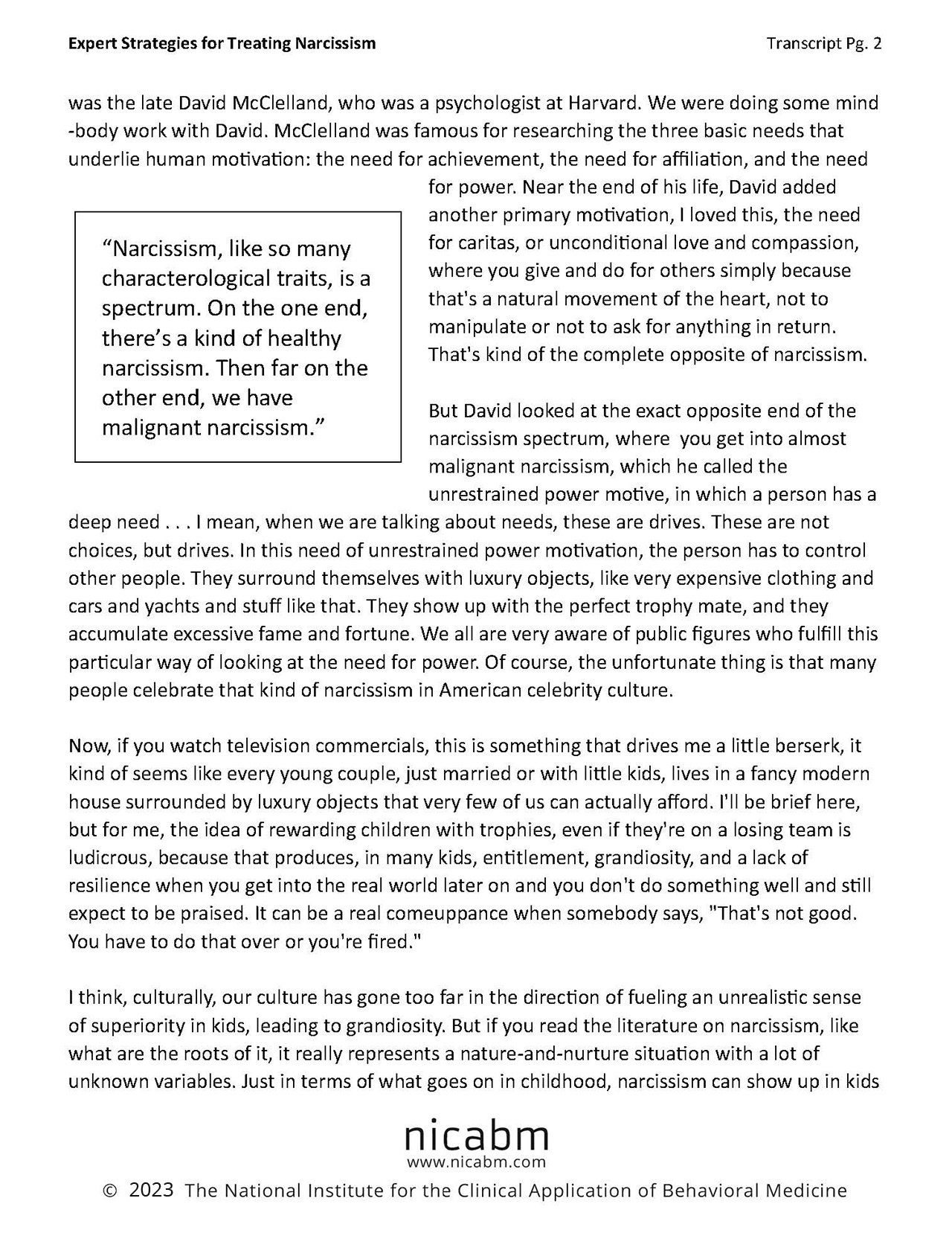75% Off – Sale Ends Tomorrow
75% Off – Sale Ends Tonight
Now 75% Off for a Limited Time
Targeting the Defenses That Sustain Narcissism
Strategies to Help You Approach a Client’s Grandiosity, Entitlement, and Lack of Self Awareness

 Treating narcissism can be complex and multi-faceted. That’s because many of the hallmark behaviors of narcissism are the very ones that create enormous barriers to change.
Treating narcissism can be complex and multi-faceted. That’s because many of the hallmark behaviors of narcissism are the very ones that create enormous barriers to change.
Creating a therapeutic alliance in the face of defensiveness, denial, and a lack of self-awareness can sometimes feel like a hopeless cause. It can also seem uniquely challenging to execute even the gentlest intervention without activating the client’s defenses.
So to help clients release the grip of this toxic cycle, we need to:
- Understand the neurobiological components that are often at the root of narcissistic or grandiose behaviors
- Implement approaches that help us work with the attachment wounds (and underlying shame) that can lead to narcissism
- Integrate strategies that can dissolve narcissistic defenses and foster the vulnerability that is often so central to healing
- Resource ourselves to manage our own reactivity – especially when we begin to feel activated in session
We consulted 22 of the top experts in the field to share practical strategies for working with clients who struggle with narcissism and grandiosity. The result is this brand new course.
Expert Strategies for Treating Narcissism

The Link Between Trauma, Attachment, and Narcissism (and How to Work with It)
Janina Fisher, PhD Peter Levine, PhD Jennifer Sweeton, PsyD
Ron Siegel, PsyD Lynn Lyons, LICSW Russell Kolts, PhD
Zindel Segal, PhD Shelly Harrell, PhD
- Three Specific Ways Narcissism Can Take Root In Childhood
- A Four-Step Approach to Work with Narcissism That Stems from Trauma
- Two Distinct Strategies to Build Rapport with Clients with Narcissistic Tendencies
- How to Revisit Past Wounds Without Agitating a Client’s Sense of Grandiosity
- One Critical Skill to Help Clients Build When Working with Narcissism

Strategies to Manage Countertransference When Working with Narcissism
Bessel van der Kolk, MD Peter Levine, PhD Chris Irons, PhD
Zindel Segal, PhD Shelly Harrell, PhD Chris Willard, PsyD
Christine Padesky, PhD Ron Siegel, PsyD
- How to Respond to Hurtful Comments That Activate Your Threat Response
- Three Techniques To Help You Stay Regulated When Working with Narcissism
- An Expert Strategy to Resource Yourself BEFORE a Session with a Challenging Client
- A Simple Reframe That Can Help You View Challenging Clients Through a More Compassionate Lens
- An Imagery Exercise That Can Help Clients Express Their Need to Challenge in a Healthy Way

How to Recognize and Work with Narcissistic Abuse
Usha Tummala-Narra, PhD Thema Bryant, PhD
- How to Distinguish Narcissistic Abuse from General Abuse
- Specific Steps to Take BEFORE Confronting a Client About Narcissistic Abuse
- One Practical Exercise to Help Clients Understand How They Engage in Narcissistic Abuse
- Specific Areas of Exploration That Can Help Clients Shift Their Attention Toward Change

Shame & Grandiosity: Helping Clients Navigate Two Key Components of Narcissism
Terry Real, MSW, LICSW Peter Levine, PhD
Ron Siegel, PsyD Christine Padesky, PhD
- How to Help Clients Become More Attuned to Their Shifting States of Shame and Grandiosity
- Strategies to Help Guide Clients Down from a Grandiose State
- Specific Questions That Can Help You Address a Client’s Grandiosity
- How to Help Clients Who Are Mired in Self-Centered Shame
- One Key Factor That Can Help Clients Find Balance Between Shame and Grandiosity

Strategies to Halt Multigenerational Patterns of Narcissism
Lynn Lyons, LICSW Thema Bryant, PhD Russell Kolts, PhD
- Specific Language to Help Clients Buy Into the Work of Dismantling Cycles of Narcissism
- What NOT To Say When Helping Families Overcome Intergenerational Patterns of Narcissism
- Two Strategies to Help Shine a Light on Unconscious Narcissistic Patterns
- One Way to Address a Client’s Narcissism When It Threatens to Derail a Session

How to Recognize Narcissism (Even When It’s Subtle)
Joan Borysenko, PhD Shelly Harrell, PhD
Zindel Segal, PhD Ron Siegel, PsyD Pat Ogden, PhD
- Key Signs That Your Client Has Narcissistic Traits
- How to Identify and Work with More Covert Forms of Narcissism
- One Counterintuitive Indicator of Narcissism
- Using Your Own Internal Cues to Help You Track a Client’s Narcissism
- How Narcissism Can Present In a Client’s Posture and Movements

How to Work with Narcissism at the Level of the Nervous System
Stephen Porges, PhD Usha Tummala-Narra, PhD Chris Willard, PsyD
- Neural Exercises That Can Help Clients Self-Regulate and Ease Narcissistic Patterns
- A Powerful Metaphor That Can Help Clients Better Attune to the State of Their Nervous System
- How to Foster a Sense of Safety in the Nervous System When a Client’s Narcissism Is Inflamed

Working with Narcissism’s Impact on a Client’s Relationships
Ellyn Bader, PhD Stan Tatkin, PsyD, MFT
Jennifer Sweeton, PsyD Christine Padesky, PhD
- A Two-Step Strategy to Work with Clients Who Don’t Think They Need Therapy
- Two Practical Exercises to Help Clients Become More Aware of Their Problematic Behaviors
- How to Work with Narcissism In the Context of Couples Therapy
- An Exercise to Help Clients Build Empathy for Their Partner

Key Missteps to Avoid When Working with Narcissism
Russell Kolts, PhD Chris Willard, PsyD Christine Padesky, PhD
Bessel van der Kolk, MD Deany Laliotis, LICSW Shelly Harrell, PhD
- The “Cardinal Rule” of Working with Narcissism
- One Effective Way to Respond to Clients Who Try to Dominate Your Session
- How to Skillfully Balance Between Validation and Collusion
- One Aspect of Treating Narcissism That Is Often Overlooked
Black Friday Sale – 75% Off for a Limited Time
Register Here for $197 $49
and get all the videos, audios, transcripts, learning tools, plus 4 bonuses
to help clients who struggle with narcissism
Sign Me Up
Up to 4.75 CE/CME Credits or Clock Hours are available for purchase at checkout.
Click HERE to get information about CE/CME credits and clock hours as well as speaker disclosures
You Are Protected By
NICABM’s Money-Back Guarantee
We invite you to register for this comprehensive training program without any risk. Unless you are completely satisfied, we will refund your money. Just let us know within 30 days from the date of registration. We are that confident that you will find this information to be more than you expected.
For This Short Course, We Brought Together Some of the Top Experts in the Field

Bessel van der Kolk, MD
Neuroscientist and Professor of Psychiatry at Boston University Medical School. Author of The Body Keeps the Score: Brain, Mind, and Body in the Healing of Trauma.
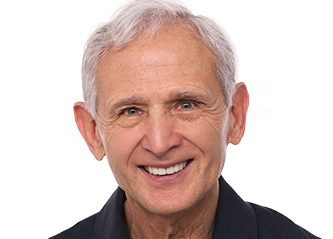
Peter Levine, PhD
Founder of Somatic Experiencing; Author of Trauma and Memory: Brain and Body in a Search for the Living Past: A Practical Guide for Understanding and Working with Traumatic Memory.

Pat Ogden, PhD
Pioneer in Somatic Psychology; Founder and Director of Sensorimotor Psychotherapy Institute (SPI); Co-founder of the Hakomi Institute; Author of Sensorimotor Psychotherapy: Interventions for Trauma and Attachment.

Shelly Harrell, PhD
Licensed psychologist specializing in multicultural and community psychology; Professor of Psychology in the Graduate School of Education at Pepperdine University.

Janina Fisher, PhD
Licensed clinical psychologist and Instructor at the Trauma Center, an outpatient clinic and research center founded by Bessel van der Kolk, MD; past president of the New England Society for the Treatment of Trauma and Dissociation.

Usha Tummala-Narra, PhD
Professor of Counseling, Developmental, and Educational Psychology at Boston College; Author of Psychoanalytic Theory and Cultural Competence in Psychotherapy; Co-author of Applying Multiculturalism: An Ecological Approach to the Multicultural Guidelines.

Christine Padesky, PhD
Co-founder of the Center for Cognitive Therapy in Huntington Beach, California; Co-creator of Strengths-Based CBT; Co-author of Mind Over Mood and Collaborative Case Conceptualization.

Terry Real, MSW, LICSW
Founder of the Relational Life Institute; Author of I Don’t Want to Talk About It: Overcoming the Secret Legacy of Male Depression and The New Rules of Marriage: What You Need to Make Love Work.

Thema Bryant, PhD
Licensed psychologist specializing in relief and empowerment of marginalized persons; Professor of Psychology in the Graduate School of Education at Pepperdine University; author of Thriving in the Wake of Trauma: A Multicultural Guide.

Joan Borysenko, PhD
Founder of Mind/Body Health Sciences LLC; Author of New York Times Bestseller Minding the Body, Mending the Mind.

Ron Siegel, PsyD
Assistant Professor of Psychology, part time, Harvard Medical School; Author of The Mindfulness Solution: Everyday Practices for Everyday Problems and Sitting Together: Essential Skills for Mindfulness-Based Psychotherapy.
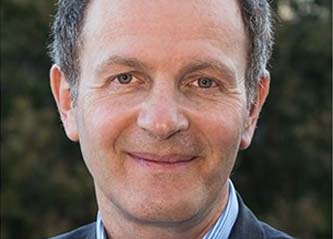
Zindel Segal, PhD
A founder of Mindfulness-Based Cognitive Therapy (MBCT); Professor of Psychology at the University of Toronto.

Christopher Willard, PsyD
Psychologist and educational consultant specializing in mindfulness; president of the Mindfulness in Education Network; serves on the board of directors at the Institute for Meditation and Psychotherapy.

Stan Tatkin, PsyD, MFT
Founder of the PACT Training Institute and developer of a Psychobiological Approach to Couple Therapy (PACT).

Deany Laliotis, LICSW
Director of Training at EMDR Institute; Specialist in treatment of traumatic stress disorders and attachment issues; author of chapters and articles on EMDR therapy.

Stephen Porges, PhD
Developer of Polyvagal Theory; Distinguished University Scientist at the Kinsey Institute at Indiana University Bloomington and Research Professor in the Department of Psychiatry at University of North Carolina Chapel Hill.

Lynn Lyons, LICSW
Author of Anxious Kids, Anxious Parents: 7 Ways to Stop the Worry Cycle and Raise Courageous & Independent Children, clinical social worker and psychotherapist specializing in anxiety in adults and children.

Jennifer Sweeton, PhD
Clinical and forensic psychologist; owner of Kansas City Mental Health Associates; adjunct professor at University of Kansas School of Medicine; author of Trauma Treatment Toolbox.

Russell Kolts, PhD
Clinical psychologist and professor of psychology at Eastern Washington University; Founder and Director of the Inland Northwest Compassionate Mind Center; author of The Compassionate Mind Approach to Managing Your Anger.
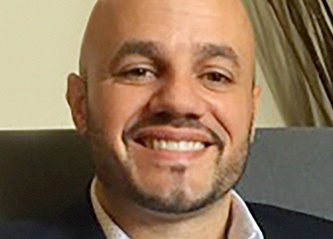
Chris Irons, PhD
Clinical psychologist; Co-Director of Balanced Minds; author of The Compassionate Mind Approach to Difficult Emotions: Using Compassion Focused Therapy;Creator of The Self-Compassion App and Co-Author of the Compassionate Mind Workbook.

Ellyn Bader, PhD
Co-creator of The Developmental Model of Couples Therapy; Co-director of The Couples Institute.

Dennis Tirch, PhD
Founding Director of The Center for Compassion Focused Therapy; President of The Compassionate Mind Foundation of North America; co-author of Experiencing ACT from the Inside Out: A Self-Practice/Self-Reflection Workbook for Therapists.

Course Director
Ruth Buczynski, PhD
Here's What You'll Get:
Everything is yours to keep forever in your professional library
|
|
Downloadable videos so you can watch at your convenience, on any device |
|
|
Audio recordings you can download and listen to at home, in the car, at the gym or wherever you like |
|
|
TalkBack Segments to distill key ideas (this is where we “land” the session) |
|
|
Next Week in Your Practice sessions to give you concrete strategies to use with clients |
|
|
Professionally-formatted transcripts of the sessions, to make review and action simple |
|
|
Four downloadable bonus videos to help clients who struggle with narcissism |
You’ll Also Get 4 Bonus Case Studies with Even More Strategies to Help You Work with Narcissism

Case Study 1 – Helping Clients Fill the Void Beneath Their Narcissism
Deany Laliotis, LICSW
- How to Help Clients Shift from Narcissism to “Healthy Entitlement”
- One Key Factor That Can Help Clients Move into Deeper Work Beyond Symptom Relief
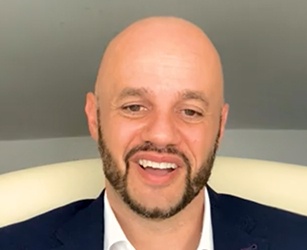
Case Study 2 – Using the Language of “Unintended Consequences” to Pierce the Veil of Narcissism
Chris Irons, PhD
- Two Specific Questions That Can Disarm a Client’s Narcissism and Foster Their Motivation for Change
- A Compassion-Focused Therapy (CFT) Approach to Help Clients Make the Critical Shift from Shame to Feelings of Guilt

Case Study 3 – Working with the Fallout of Narcissistic Abuse
Dennis Tirch, PhD
- An Unconventional Approach That Helped One Client Access Feelings That Were Buried Beneath Their Narcissism
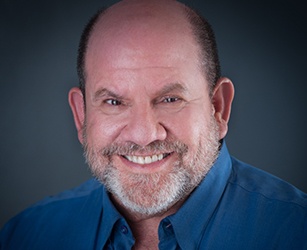
Case Study 4 – One Key Factor Needed to Shift Patterns of Narcissism
Stan Tatkin, PsyD, MFT
- How to Create the Leverage Needed to Help Clients Engage in Couples Work
Black Friday Sale – 75% Off for a Limited Time
Register Here for $197 $49
and get all the videos, audios, transcripts, learning tools, plus 4 bonuses
to help clients who struggle with narcissism
Sign Me Up
Up to 4.75 CE/CME Credits or Clock Hours are available for purchase at checkout.
Click HERE to get information about CE/CME credits and clock hours as well as speaker disclosures
You Are Protected By
NICABM’s Money-Back Guarantee
We invite you to register for this comprehensive training program without any risk. Unless you are completely satisfied, we will refund your money. Just let us know within 30 days from the date of registration. We are that confident that you will find this information to be more than you expected.
Starting Today, This Program Can Change the Way You Practice

. . . I feel so fortunate to have this access to brain power, experience and research synthesis . . .
“When I listen to the experts talk openly about their experience, I feel so fortunate to have this access to brain power, experience and research synthesis on cutting edge issues! I go back to the videos to reinforce things that will assist my clients.”
Mary Logan, Counselor
Ipswich, MA

I benefit, my practice benefits, and most important my clients benefit . . .
“I live in Nova Scotia and have limited travel funds at the university at which I work. The series provided by NICABM gives me the rare opportunity to listen to the leaders in the field. As a result, I learn valuable information that would not otherwise be available to me. I benefit, my practice benefits, and most important my clients benefit from the knowledge and wisdom I gain from the series.”
David Mensink, PhD Counseling Psychology, Psychologist
Halifax, Nova Scotia, Canada

. . . some dare to go the extra journey to research and educate
“These NICABM series keep me afloat, in touch, on track, well trained in my field, and more personally healthy. The best aspect, though, is that I feel validated and comforted knowing that some dare to go the extra journey to research and educate, so I can walk the path to health, and can share with others.”
Mary Corsello-Vilcheck, LCSW
Midlothian, VA
Why the Transcript Is Essential:
- The transcript makes it easy to go back and double check concepts, citations and names that are mentioned
- We put in a table of contents to make it easy for you to find the exact part of the webinar you need
- Having the concepts already written allows you to take notes on how you’re going to use the ideas rather than transcribing the ideas
- Some people simply learn better by reading than by listening or watching
- You will be able to print out and share techniques presented in the session with your patients

“I really liked being able to follow along with the transcripts as I listened…it was nice not to feel like I had to take notes. I really feel like I remember more when I both hear and see at the same time.”
Mary Ellen McNaughton, Masters in Counseling, Psychology Counselor
Kelowna, British Colombia, Canada
You Are Protected By
NICABM’s Money-Back Guarantee
We invite you to register for this comprehensive training program without any risk. Unless you are completely satisfied, we will refund your money. Just let us know within 30 days from the date of registration. We are that confident that you will find this information to be more than you expected.
Black Friday Sale – 75% Off for a Limited Time
Register Here for $197 $49
and get all the videos, audios, transcripts, learning tools, plus 4 bonuses
to help clients who struggle with narcissism
Sign Me Up
Up to 4.75 CE/CME Credits or Clock Hours are available for purchase at checkout.
Click HERE to get information about CE/CME credits and clock hours as well as speaker disclosures
